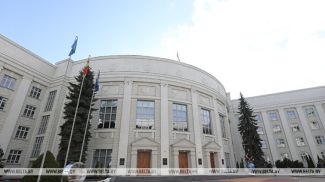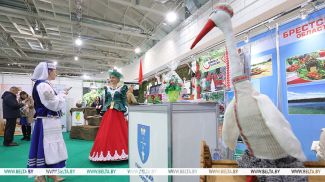MINSK, 22 May (BelTA) – A device has been developed in Belarus to keep organs fit for transplantation longer, BelTA learned from Oleg Rummo, Director of the Minsk Applied Research Center for Surgery, Transplantology, and Hematology, during an offsite press event in the center.
The head of the medical institution said: “We are doing a colossal amount of work to create new systems able to improve the quality of transplantology aid.” The director mentioned a device developed together with a company residing in the Hi-Tech Park. The device can keep organs fit for transplantation for longer periods of time. The technology is capable of negating the consequences that follow organ removal and transportation. The organ removed for transplantation purposes experiences a certain curative effect, which improves its quality and reduces the risk of post-surgery complications.
The device was demonstrated to Belarus President Aleksandr Lukashenko as he visited the administration of the Hi-Tech Park.
Another product developed jointly with the Hi-Tech Park involves automating the process of selecting recipients for organ transplantation.
Specialists of the Minsk Applied Research Center for Surgery, Transplantology, and Hematology are busy developing cell technologies. Various cell products may be used to treat difficult patients with liver failures as well as pancreatic diabetes patients. These technologies are widely used in oncohematology to treat patients with malignant blood diseases.
Apart from that, an innovative project is being implemented to create a bank of stem cells, valves, and vascular allografts. The team of the Minsk Applied Research Center for Surgery, Transplantology, and Hematology, which carried out part of this project, received a prize from the Federation of Trade Unions of Belarus (FTUB) a short while ago.
The Minsk medics are working with Slovak colleagues to find ways to use 3D printing technologies for help specific patients.











